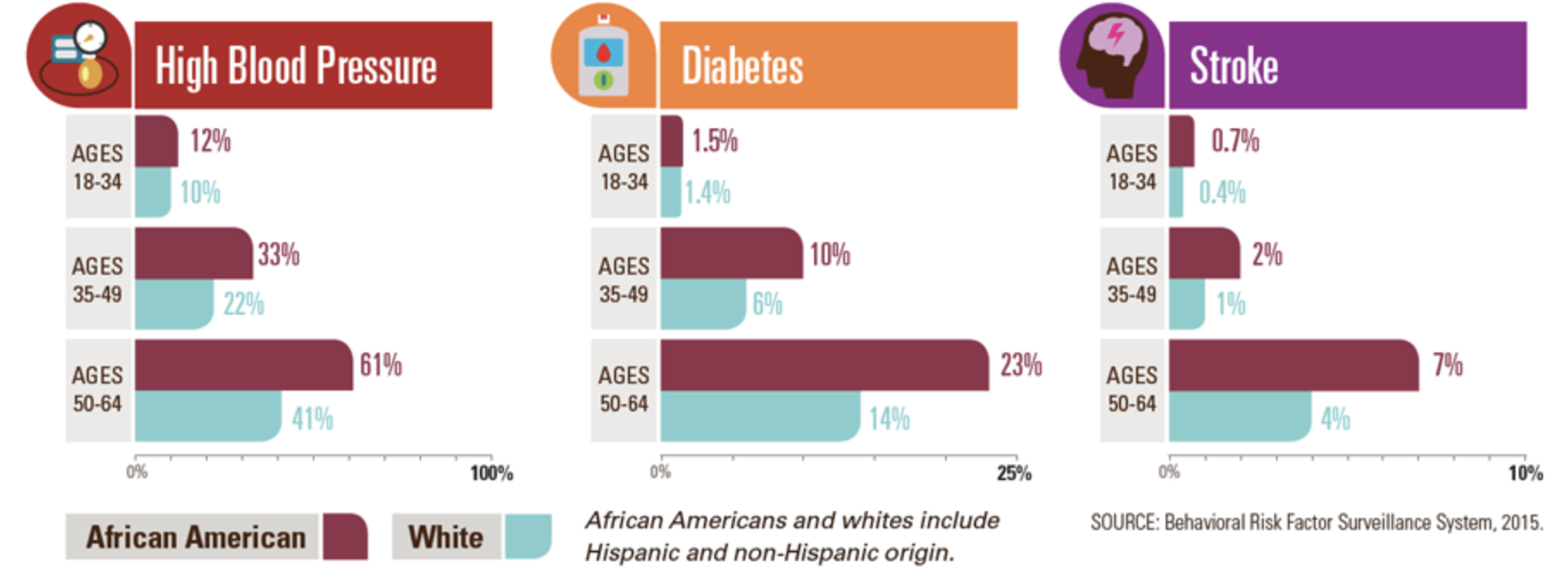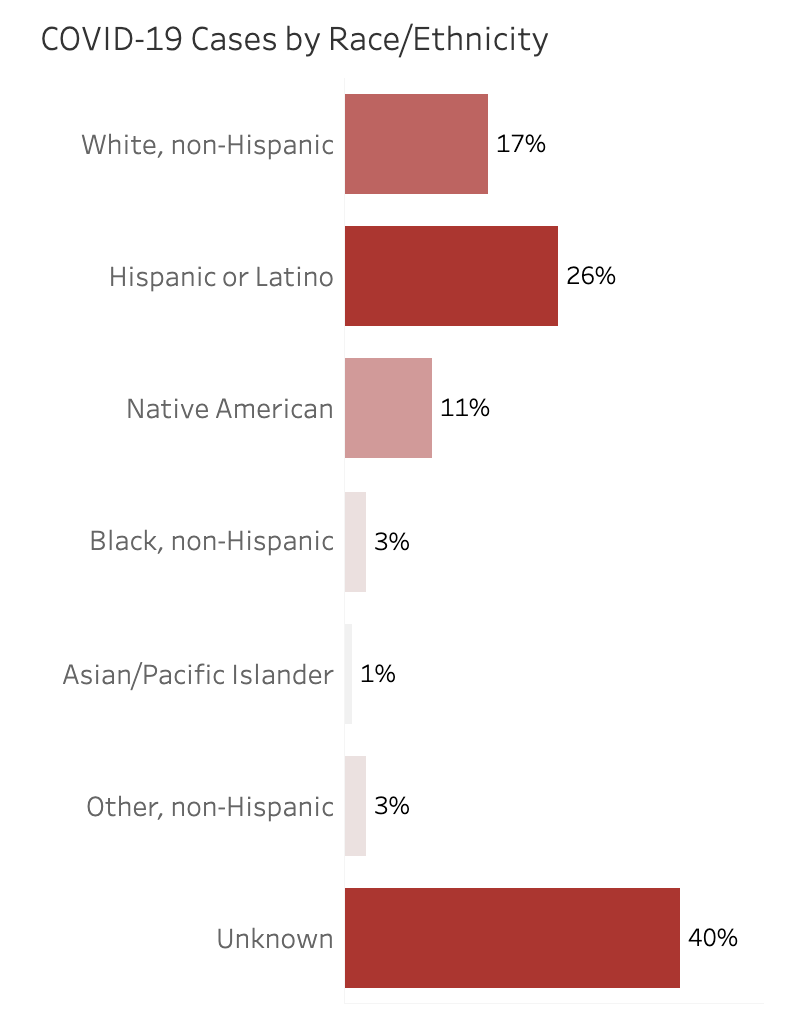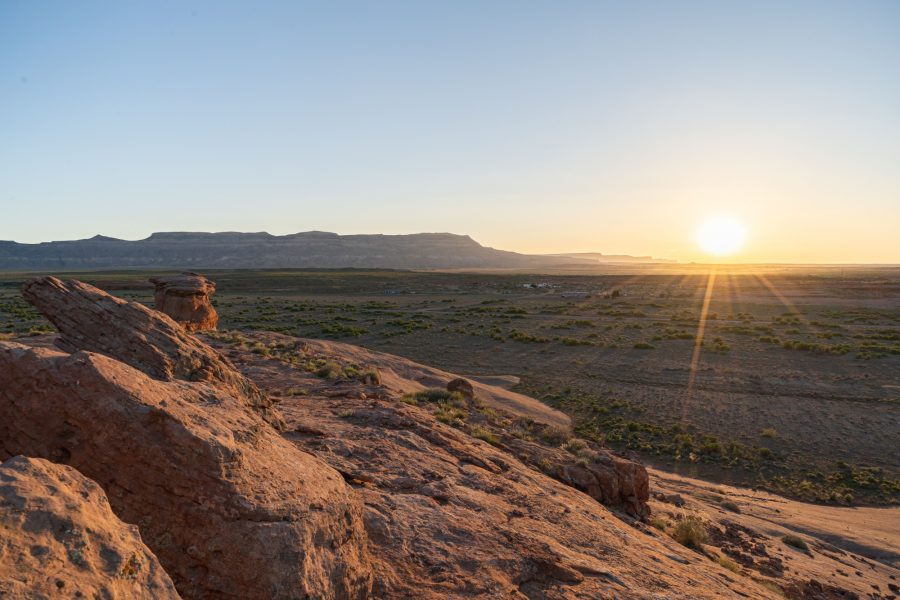As of June 17, the U.S. has seen nearly 2.3 million confirmed cases of COVID-19 alongside 120,000 confirmed deaths. However, a deeper look into these numbers shows that this pandemic has exposed the long-standing health disparities present in the U.S. healthcare system.
According to Marion Kelly, the director for the Office of Community Affairs at the Mayo Clinic, minority groups in the United States — including black, Hispanic/Latinx, and Native American populations — are suffering disproportionately in comparison to others within the majority population.
“I think that you’ll find in any database that has been appropriately tracked, that all minority groups have outcomes that are worse than those of the majority population,” Kelly said. “For the African descent population, depending on where you are, the health outcomes are sometimes more than double than of the majority Caucasian population when it comes to health outcomes.”
RELATED: COVID-19 death rate potentially lower, disproportionately affects minority groups
The American Public Media Research Lab recently released a set of findings which indicated that the population of black Americans in 43 states have had the highest rate of death per 100,000 people. The study found “the latest overall COVID-19 mortality rate for Black Americans is 2.3 times as high as the rate for Whites and Asians, and 2.2 times as high as the Latino rate.”
Kelly believes that these disparities are the result of systemic racism, meaning a deeply-embedded racial inequality in regards to education school systems, banking systems, housing systems and more.
“They exist for a number of reasons, the first one I’ll state is the obvious — we live in a racist society that causes people of color to be judged and viewed differently than other populations, and it’s systemic racism,” Kelly said.
In addition to this and the underlying health conditions endemic in the black population, another hard-to-ignore reason as to why blacks have been hit harder by the pandemic can be tied back to the type of jobs they are more likely to hold compared to their white and Asian counterparts.

Source: CDC
A recent study by the Economic Policy Institute showed that from 2017 to 2018, 19.7% of black or African American workers could work from home compared to 29.9% of white workers and 37% of Asian workers who could do so. When a worker holds an “essential” job and is unable to work from home, they become more likely to contract the virus and fall ill.
RELATED: Congressman Ruben Gallego and two health experts hold press conference for spike in COVID-19 cases
In Southern Arizona, the Hispanic/Latinx population is also continuing to be hit disproportionately hard with COVID-19.
According to the Arizona Department of Health Services, the Hispanic/Latinx population accounts for 26% of COVID-19 cases in comparison to the white population which accounts for up 17%, as of June 17. At the same time, whites make up about 54.4% of the population in Arizona compared to 31.6% from the Hispanic/Latinx population.

Source: Arizona Department of Health Services
Anahi Valenzuela, a project coordinator for Amistades, a Latino serving nonprofit organization in Tucson, identified a list of reasons why these health disparities exist.
“With the families that we work with, a lot of the families are undocumented and they are afraid to seek medical treatment,” Valenzuela said. “The majority of families are also single-parent households. and so those parents have to decide whether to go to work or stay home with their children.”
According to Valenzuela, many of these families must go to work because they do not have any other source of income, and many work “essential worker” jobs.
In times of COVID-19, though, Valenzuela and the Amistades team are working vigilantly to combat these health disparities and other issues surrounding the Latino community in Tucson.
“We’ve been working with different partners to address these disparities,” Valenzuela said. “This is why the agency was created, to give our Latino community a voice.”
Native Americans have also been disproportionately affected by COVID-19 in Arizona. The Navajo Nation saw a slight decrease in cases the past few days, according to AZFamily; however, during the past few months, they saw a flood of cases.
RELATED: Nursing homes and assisted living facilities: a battleground for COVID-19
Native Americans have been hit hard by the novel coronavirus for a lot of the same reasons as the black population. A high percentage of underlying health conditions combined with less access to healthcare and treatment puts them in a very difficult situation.
According to the Indian Health Service, “American Indians and Alaska Natives continue to die at higher rates than other Americans in many categories, including chronic liver disease and cirrhosis, diabetes mellitus, unintentional injuries, assault/homicide, intentional self-harm/suicide, and chronic lower respiratory diseases.”
However, many have recognized the need for wearing masks to slow down the spread of the virus despite no official governor’s order to do so for the rest of the state.
“I truly believe wearing masks helps slow down the spread of COVID-19,” Navajo Nation President Jonathan Nez said to AZFamily. “And in the state of Arizona there’s no public health order that mandates citizens to wear masks, and maybe that is a factor in this real big spike.”
Nez’s belief can be backed up by the current research that looked at the benefit of a wearing mask to slow down the transmission of SARS-CoV-2.
A recent study by the National Academy of Sciences revealed that the “wearing of face masks in public corresponds to the most effective means to prevent interhuman transmission.”
Another study by BMJ, a high-impact medical research journal, found that wearing a mask “was 79% effective at curbing transmission before symptoms emerged in the first person infected, but it wasn’t protective once symptoms had developed.”
In response to the health disparities that exist among the Navajo people, the Navajo Nation COVID-19 Fund was established and has now raised over $1,500,000.
With public health disparities becoming more evident during times of COVID-19, Valenzuela urges marginalized communities to “keep fighting” and to “keep using their voice.”
Follow Amit Syal and Quinn McVeigh on Twitter









